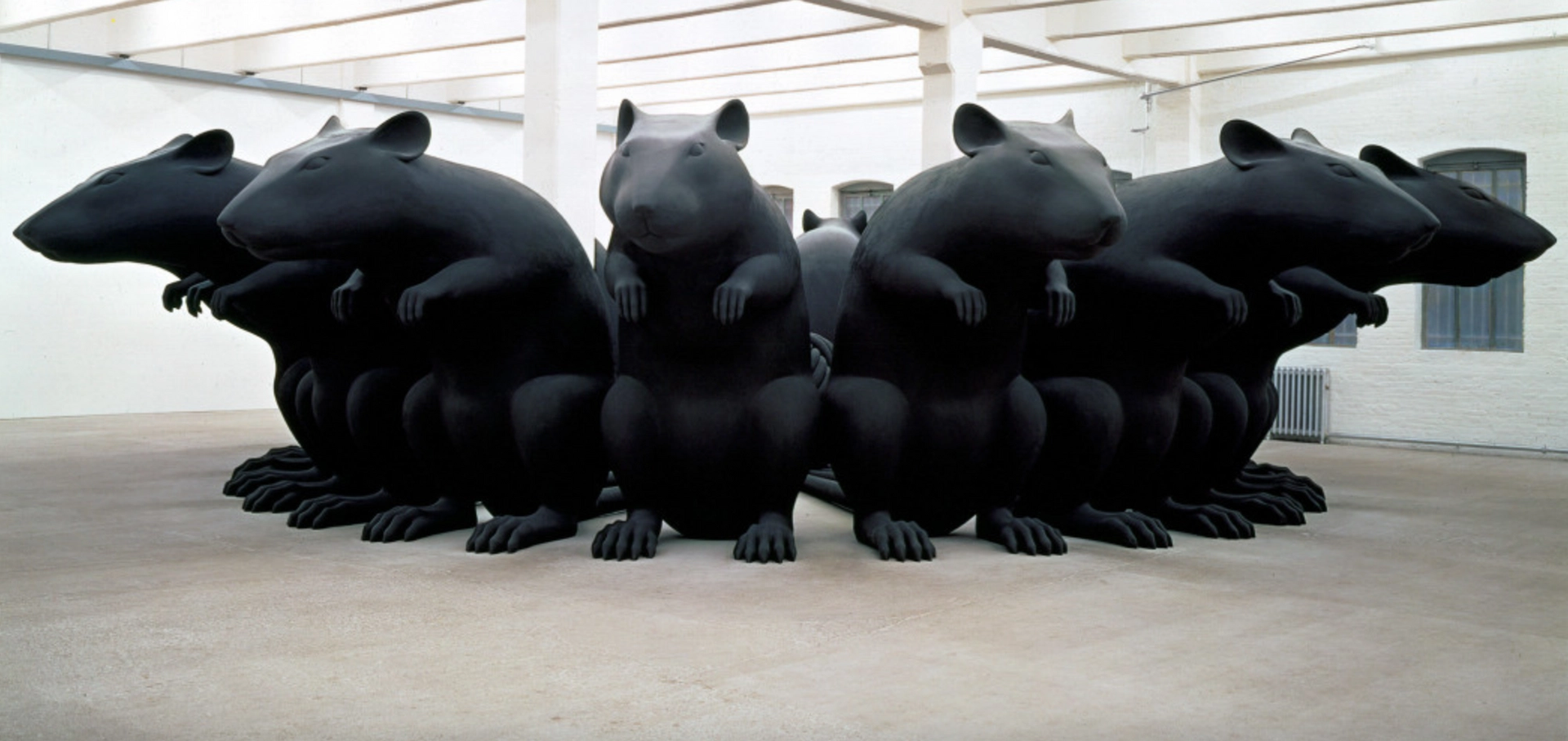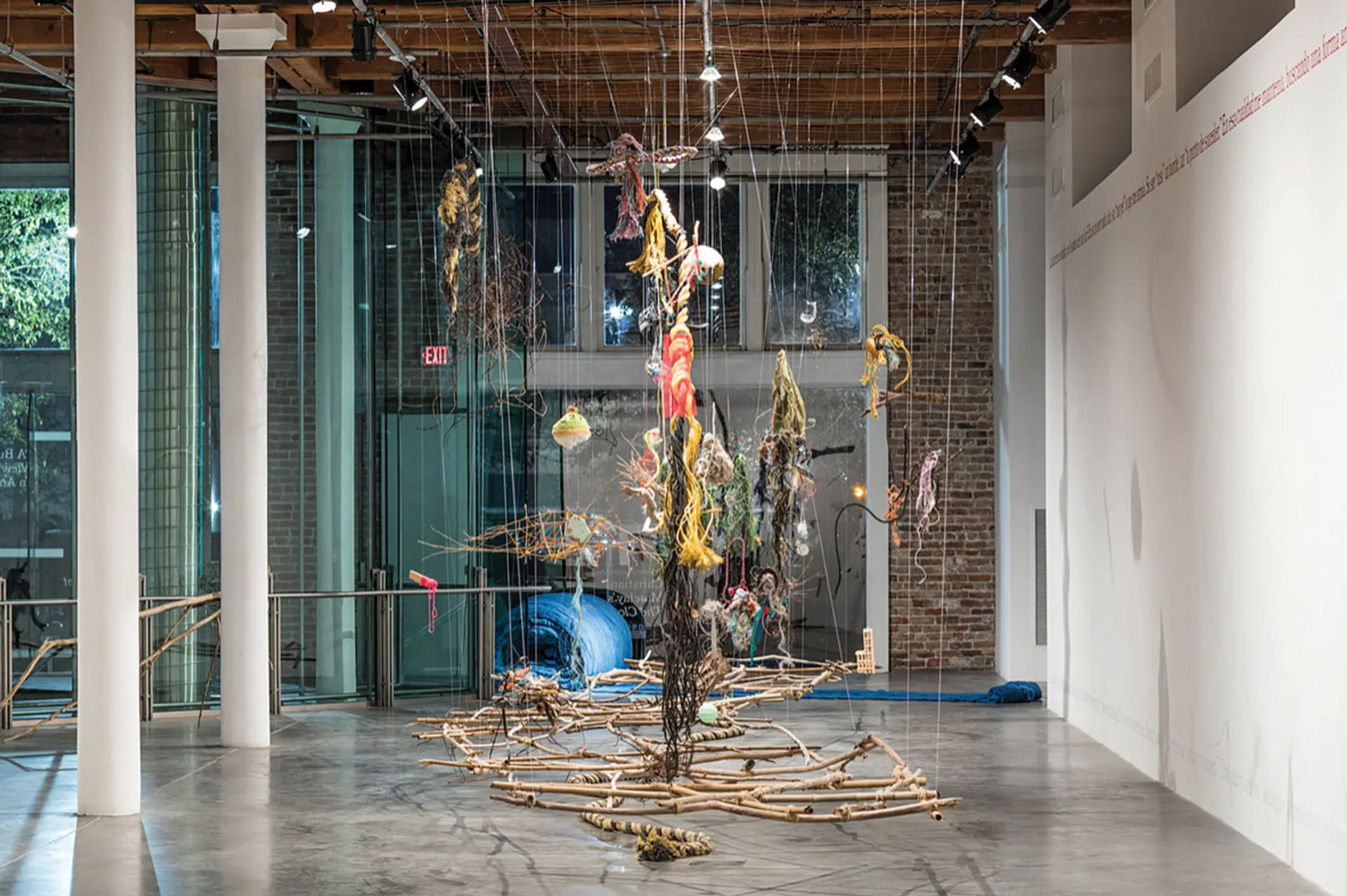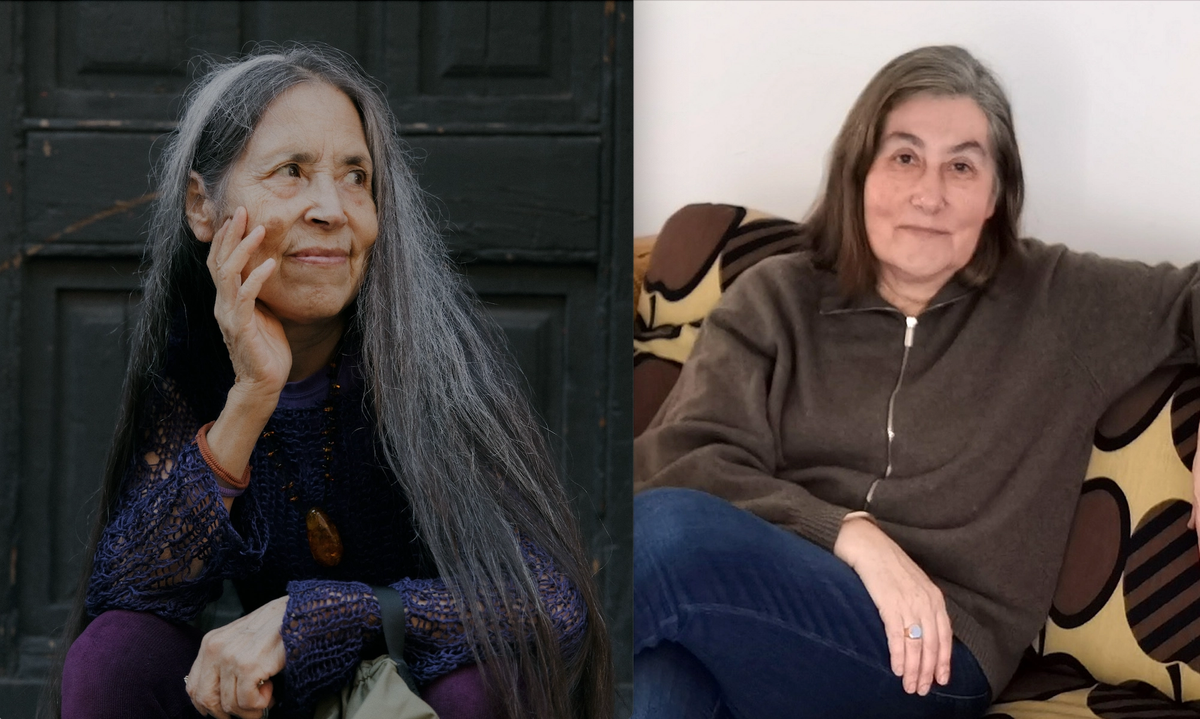The German artist Katharina Fritsch and the Chilean artist Cecilia Vicuña have received the prestigious Golden Lions for Lifetime Achievement awarded by the Venice Biennale. Both artists were chosen by Cecilia Alemani, the curator of the 59th International Art Exhibition of La Biennale di Venezia (The Milk of Dreams, 23 April-27 November). Fritsch and Vicuña will feature in The Milk of Dreams exhibition and are due to receive their awards on the Biennale inauguration day (23 April).
“Fritsch’s contribution to the field of contemporary art, especially sculpture, has been incomparable,' Alemani says in a statement. "She creates figurative works that are both hyperrealistic and fanciful: copies of objects, animals, and people, faithfully rendered in every detail, but transformed into uncanny apparitions.”

Katharine Fitsch's Rat King (1993)
Alemani describes the first time she saw one of Fritsch’s works in person at the 1999 Venice Biennale curated by Harald Szeemann. “The massive piece filling the main room at the Central Pavilion was titled Rattenkönig, the Rat King, a disquieting sculpture in which a group of giant rodents is crouched in a circle with their tails knotted together, like some strange magic ritual.”
The sculpture was mainly inspired by Fritsch’s first visit to New York in the 1980s. “Aids had become a tragic reality, and the entire mood of the art world was subdued,” the artist recalls. Fritsch’s giant blue cock sculpture, Hahn/Cock stood on the Fourth Plinth in Trafalgar Square in 2013. Matthew Marks Gallery in New York has represented the artist since 1996.

Balsa Snake Raft to Escape the Flood (2017), one of Vicuña’s ephemeral “precario” sculptures Photo: © Alex Marks, courtesy of the Contemporary Arts Center New Orleans
Vicuña is an artist and a poet, and has devoted years to preserving the work of many Latin American writers, translating and editing anthologies of poetry that might otherwise have been lost, Alemani says. “Vicuña is also an activist who has long fought for the rights of Indigenous peoples in Chile and the rest of Latin America. In the visual arts, her work has ranged from painting, to performance, all the way to complex assemblages. Her artistic language is built around a deep fascination with Indigenous traditions and non-Western epistemologies,” she adds.
“I believe our art and consciousness can play a role in the urgent need to move away from violence and destruction, to save our environment from impending collapse,” Vicuña says in a statement. Over a 40-year career, she has referenced ancient practices and addressed political, environmental and gender disparities. In an interview with The Art Newspaper, she described the links between her art and her poetry.
In 2013, two women artists—Maria Lassnig and Marisa Merz—were also awarded the Golden Lion for Lifetime Achievement under the biennale curator Massimiliano Gioni.
UPDATE: “Katharina Fritsch’s iconic and singular sculptures play on the tension between reality and apparition, between the familiar and the surreal or uncanny,” says her London-based gallery White Cube.


